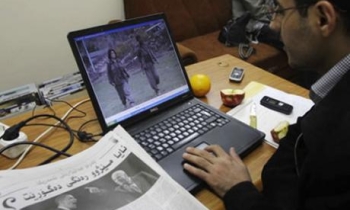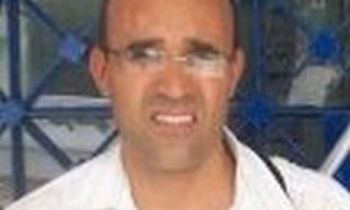The International Federation of Journalists (IFJ) today said the injuries sustained by two journalists embedded with Canadian troops in Afghanistan were a further indication of the dangers facing media staff in conflict zones – even for those travelling under the protection of armed forces.
“This attack shows the perilous reality of embedded journalism,” said Aidan White, IFJ General Secretary. “Media staff covering conflict are always at risk and when they are travelling with armed combatants, that risk becomes ever-more real.”
On Wednesday, cameraman Charles Dubois and journalist Patrice Roy, who work for Radio-Canada Television, were injured when a roadside bomb hit the vehicle they were travelling in. Two Canadian soldiers and an interpreter died in the attack. Dubois suffered a severe leg injury and Roy was treated for shock.
Roy, the Ottawa bureau chief for the CBC's French-language network, told reporters how he was sitting in the third seat of the light armoured personnel carrier when a huge blast pushed him forward and tore the vehicle apart, killing the medic seated in front of him.
A second soldier and the interpreter were also killed, while Roy said another soldier suffered a head wound. Roy's colleague, Charles Dubois, suffered a serious leg injury.
"We were at the end of a very difficult mission," Roy said in the first eyewitness account to emerge a day after the blast, CBC reported. "They told us, 'The Taliban won't shoot because we're so many tanks. It's a demonstration of force, so they will run,'" he said, often sighing and casting his eyes downward during the interview. "They didn't run."
Roy recalled how the group of vehicles moved back and forth and circled a small village for several hours trying to find a way to get to the objective on the mountain, about 50 km west of Kandahar.
The two newsmen were on a six-week assignment in Afghanistan, said Radio-Canada news manager Alain Saulnier. Both had taken a security training course with a specialised British company to prepare for work in a combat zone. "The two were going there well prepared," Saulnier told Globe and Mail.
Canada has some 2,600 soldiers based in the Kandahar region in an operation that has become increasingly unpopular at home. Sixty-nine Canadian soldiers have been killed since the NATO-led operation began.
In December 2006, the United Nations Security Council passed Resolution 1738, a measure championed by the IFJ and its member unions that protects journalists in conflict zones and says killing them can be considered a war crime.
The IFJ believes that safety should be the top concern when journalists are given assignments in conflict areas. It has called on all employers to provide safety training to employees working in dangerous environments. The IFJ is a founding member of the International News Safety Institute (INSI), an organisation of media organisations, press freedom groups, unions and humanitarian campaigners dedicated to the safety of journalists and media staff. INSI has provided safety training to hundreds of journalists all over the world.
“We wish Charles and Patrice a quick recovery and remind all media organisations that safety should be of paramount importance when they send their employees into conflict zones,” White said.









